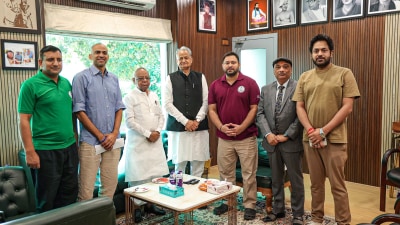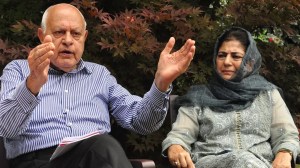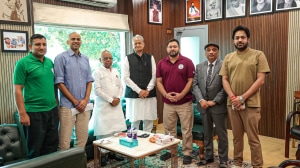Sanjeevani scheme for better life for police personnel
NAGPUR, APRIL 13: For an overstretched khaki clan, it may not prove to be as effective as the mythical medicinal plant it has been named a...

NAGPUR, APRIL 13: For an overstretched khaki clan, it may not prove to be as effective as the mythical medicinal plant it has been named after. Yet, the Sanjeevani Welfare Scheme — a brainchild of former DGP Arvind Inamdar — comes as a novel initiative for cops to develop a degree of health consciousness, so essential in these days of stress-driven routine.
The rising burden of law and order duties that stretch, at times, round-the-clock, the pulls and pressures of what is commonly regarded a thankless job, irregular food habits, lack of exercise and domestic problems are some factors that have given way to a range of stress-related ailments.
To combat these the emphasis has been laid on better stress management through measures like reorientation sessions, controlled diet habits and Yogasanas.
Already, the State Police has made it mandatory for police personnel to go through such sessions or camps — held regularly at Regional Police Training Schools and State Reserve Police Force camps in batches of 15.
The scheme was mooted as part of these welfare measures and envisages membership for policemen from the rank of DSP to Constable against a nominal monthly contribution to the health scheme fund: Once a member, the policeman gets a printed card from the State Police Headquarters, which he has to furnish to the doctors supervising periodic health check-ups, to give an update on his or her health status.
Already, a month-long health check-up camp — the first to be held under the scheme since its introduction early this year for city police — is underway at the Police Hospital in Headquarters, Police Line Takli. The importance, being attached to the scheme by the cops, can be gauged from the response drawn in the first fortnight with as many as 1,000 policemen lining up for a thorough medical check-up.
Of the 6,000-strong workforce, 3,000 police personnel have so far enrolled themselves under the scheme and a thousand have already gone through check-up. Authorities, conducting the camp, sounded hopeful about the remaining 2,000 reporting in time over the next fortnight to avail of the facility.
“We have been conducting an analysis of the members’ medical case history and suggesting corrective steps,” observed Dr Suhas Mahurkar of the Central India Eye Bank, Hospital and Research Centre, who is also a senior medical consultant to the city police.
He said the camp has helped in generating consciousness about health. “They (members) are quite happy. Many did not even know what they were suffering from till they came here and now they can get treated in time,” he pointed out. At the end of the camp, the medical team is expected to forward a report to Commissioner of Police O P Bali, who has taken an active interest in these activities, stating its findings and also suggesting ways and means to a better life for the police personnel.





- 01
- 02
- 03
- 04
- 05


























